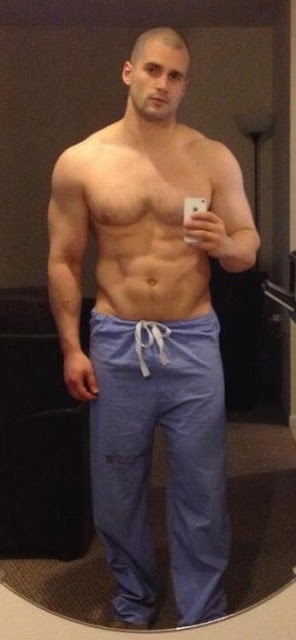As a disclaimer, I don't care about how you dress or your sexual orientation. I also don't care about their rules, and I don't particularly support those rules. I simply will adhere to them.
Doesn't your point break down by itself? I mean you're saying that I should ignore my identity as a transgendered applicant, wear a suit that I consider completely oppressive towards the LGBT community, bite my tongue, and "just wear it." And THAT, of course, has nothing to do with my sexual identity?
Wasn't really making a point. I'm just saying how they want it, generally speaking. The mantra goes "don't stand out" (at least in the way of your attire). Plenty of people think suits are oppressive/ridiculous outfits for completely different reasons other than sexual orientation. But I wasn't really saying it in that way. I mean it's not an issue of sexual orientation because considering sexual orientation or even identity here is a complete non-sequitur. It has nothing to do with adhering to the rule - which is the only thing to be considered. What's being "said" by the uniform or what's being "oppressed" is irrelevant. We just aren't the deciders here; it's not really the time or place to rock the boat, if we want to give ourselves the best chances of success. With that said, if you're willing to risk a possibly negative reaction, then of course you're an adult with the freedom to dress as you see fit on any occasion.
Because really, what I dress literally shows nothing about my capabilities as a physician.
I think this is obvious enough to everyone, including the adcoms. But your lack of adherence to what are considered proper practices may cause a negative reaction in those who are judging you. Again, not the time nor the place when you're trying to win the favor of others. If you're on the street, f*ck it: Wear what you want. I'm just saying, however ridiculous it might seem, culturally, we gotta do what we gotta do. If it was a rule of theirs for guys to wear dress skirts and girls to wear suits, we'd adhere to that. Again, this has nothing to do with our identity. It is their rules for attire that are the only rules to be considered.
But if the truth is that if I wear anything that shows I intentionally deviate from the "traditional attire" then I think that's a really sad aspect of the med school application.
Strong morals. Nice. I'm just saying be selective with where you want to fight the system. You can have a much greater impact elsewhere with comparatively much less risk. There is no reason for you to put a future career on the line to show adcoms the error in their ways and instigate interview attire reform. I think some of them may even agree with you, but nevertheless I don't believe they intend to change their practices very drastically.
Mind you this is all assuming that whatever you "dress as," you're dressing according to the commonly accepted attire for whatever gender it is. This is also assuming that (at least) most adcoms would be accepting of dressing as the other gender, which I am really not sure about.
@gyngyn seems to be cool with it, but I don't know how medical colleges on the whole look at that. Again, if I were you, I wouldn't try to throw a revolution. But if you feel that strongly about it, do what you please and consider the potential consequences carefully.



